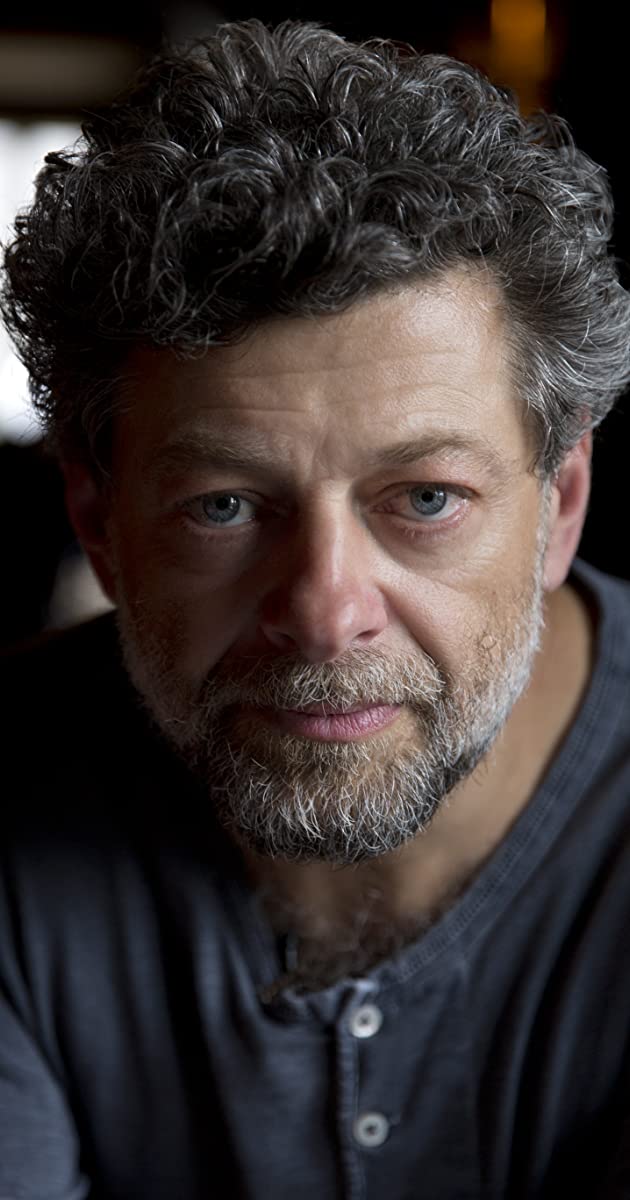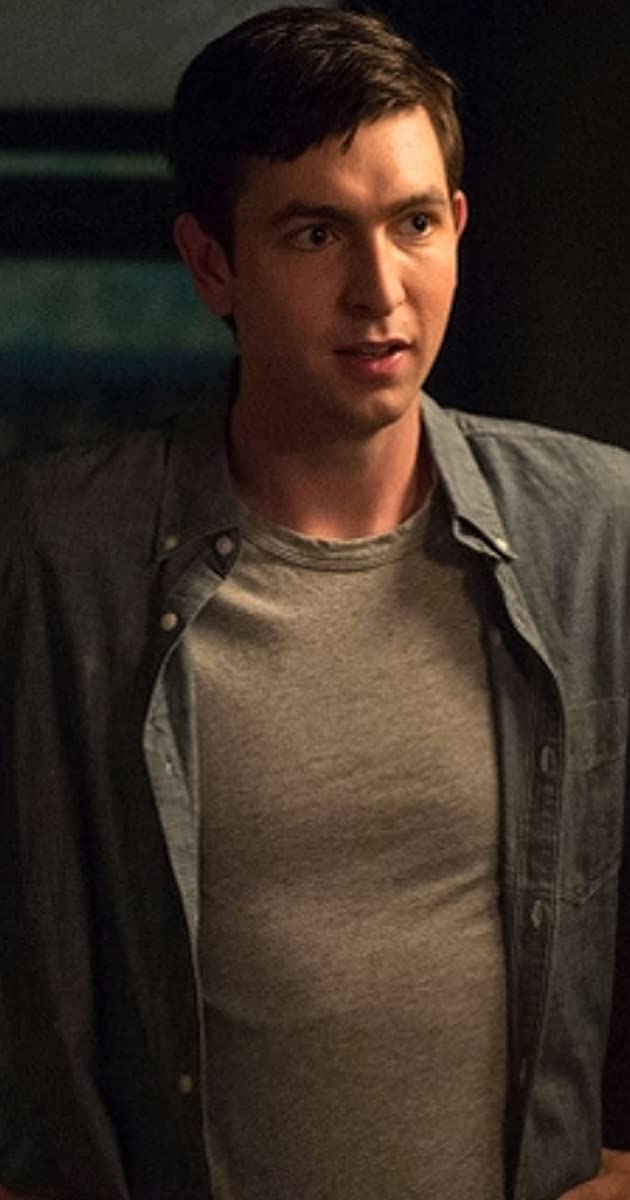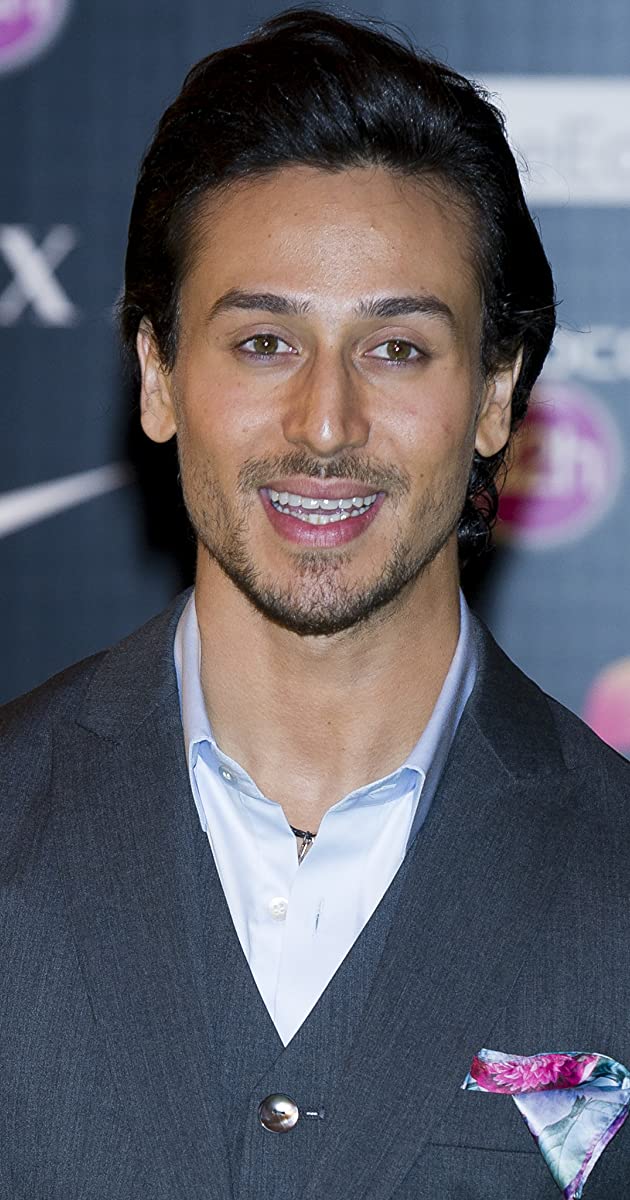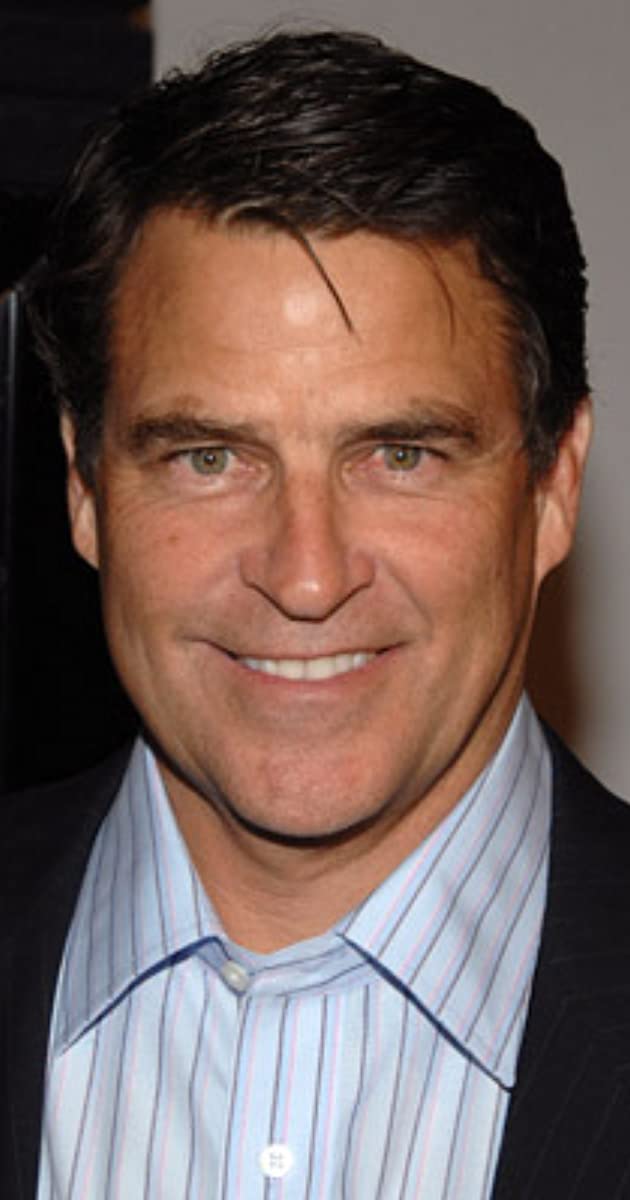
English film actor, director and author Andy Serkis is known for his performance capture roles comprising motion capture acting, animation and voice work for such computer-generated characters as Gollum in The Lord of the Rings film trilogy (2001-2003) and The Hobbit: An Unexpected Journey (2012), the eponymous King Kong in the 2005 film, Caesar in Rise of the Planet of the Apes (2011) and Dawn of the Planet of the Apes (2014), Captain Haddock / Sir Francis Haddock in Steven Spielberg’s The Adventures of Tintin: The Secret of the Unicorn (2011) and Supreme Leader Snoke in Star Wars: Episode VII – The Force Awakens (2015). Serkis earned a Golden Globe Award nomination for his portrayal of serial killer Ian Brady in the British television film Longford (2006), and was nominated for a BAFTA Award for his portrayal of new wave and punk rock musician Ian Dury in the biopic Sex & Drugs & Rock & Roll (2010). In 2015, he had a small role in Avengers: Age of Ultron (2015). Serkis has his own motion capture workshop, The Imaginarium Studios in London, which he will use for his directorial debut, Mowgli: Legend of the Jungle (2018).
Andrew Clement G. Serkis was born April 20, 1964, in Ruislip Manor, West London, England. He has three sisters and a brother. His father, Clement Serkis, an ethnic Armenian whose original family surname was Serkissian, was a medical doctor working abroad, in Iraq; the Serkis family spent time around the Middle East, and for the first ten years of his life, Andy traveled between Baghdad and London. His mother, Lylie (Weech), who is British-born, was busy working as a special education teacher of handicapped children, so Andy and his four siblings were raised with au pairs in the house. Young Serkis wanted to be an artist; he was fond of painting and drawing, and visualized himself working behind the scenes. He attended St. Benedict’s School, a Roman Catholic School for boys at the Benedictine Abbey in London. Serkis studied visual arts at Lancaster University in the north-west of England. There, he became involved in mechanical aspects of the theatre and did stage design and set building for theatrical productions. Then, Serkis was asked to play a role in a student production, and made his stage debut in Barrie Keeffe’s play, “Gotcha”; thereafter, he switched from stage design to acting, which was a real calling that transformed his life.
Instead of going to an acting college, Serkis, in 1985, began his professional acting career at the Duke’s Playhouse in Lancaster, where he was given an Equity card and performed in fourteen plays, one after another, as an apprentice of Jonathan Petherbridge. After that, he worked in touring theatre companies, doing it for no money, fueled by a sense of enthusiasm, moving to a new town every week. He has thus appeared in a host of popular plays and on almost every renowned British stage. In 1989, he appeared in a stage production of William Shakespeare’s “Macbeth”, so beginning his long association with the Royal Exchange Theatre, Manchester, where he would return many times, to appear in “She Stoops to Conquer”, “Your Home in the West” and the “True Nature of Love”, among other plays. In the 1990s, Serkis began to make his mark on the London stage, appearing at the Royal Court Theatre as “The Fool” in “King Lear”, making his interpretation of “The Fool” as the woman that “Lear”, a widower, could relate to – a man, in drag, as a Victorian musician. He also appeared as “Potts” in the hit play, “Mojo”, playing in front of full houses and earning huge critical success. In 1987, Serkis made his debut on television, and he acted in several major British TV miniseries throughout the 1990s.
In 1999, Andy Serkis landed the prize role of “Gollum” in Peter Jackson’s epic film trilogy based on J.R.R. Tolkien’s saga, “The Lord of the Rings”. He spent four years in the part and received awards and nominations for his performance as “Gollum”, a computer-generated character in The Lord of the Rings: The Return of the King (2003), which won 11 Oscars. “Gollum” was the collaborative team’s effort around Serkis’s work in performance capture – an art form based on CGI-assisted acting. Serkis’s work was an interactive performance in a skin-tight CGI suit with markers allowing cameras to track and register 3D position for each marker. Serkis’ every nuance was picked up by several cameras positioned at precisely calculated angles to allow for the software to see enough information to process the image. The images of Serkis’ performances were translated into the digital format by animators at Weta Digital studio in New Zealand. There, his image was key-frame animated and then edited into the movie, Serkis did have one scene in “The Return of the King” showing how he originally had the ring, killing another hobbit to posses it after they found it during a fishing trip. He drew from his three cats clearing fur balls out of their throats to develop the constricted voice he produced for “Gollum” and “Sméagol”, and it was also enhanced by sound editing in post-production.
Serkis spent almost two years in New Zealand and away from his family, and much of 2002 and 2003 in post-production studios for large periods of time, due to complexity of the creative process of bringing the character of “Gollum” to the screen. Serkis had to shoot two versions for every scene; one version was with him on camera, acting with (chiefly) Elijah Wood and Sean Astin, which served both to show Wood and Astin the moves so that they could precisely interact with the movements of “Gollum”, and to provide the CGI artists the subtleties of Gollum’s physical movements and facial expressions for their manual finishing of the animated images. In the other version, he’d go the voice off-camera, as Wood and Astin repeated their movements as though “Gollum” were there with them; that take would be the basis for inserting the CGI Gollum used in the released movie. In post-production, Serkis was doing motion-capture wearing a skintight motion capture suit with CGI gear while acting as a virtual puppeteer redoing every single scene in the studio. Additional CGI rotomation was done by animators using the human eye instead of the computer to capture the subtleties of Serkis’ performance. Serkis also used this art form in his performance as “Kong” in King Kong (2005), which won him a Toronto Film Critics Association Award (2005) for his unprecedented work helping to realize the main character in “King Kong”, and a Visual Effects Society Award (2006) for Outstanding Animated Character in a Live Action Motion Picture.
Apart from his line of CGI-driven characters, Serkis continued with traditional acting in several leading and supporting roles, such as his appearances as “Richard Kneeland” opposite Jennifer Garner in 13 Going on 30 (2004), and “Alley” opposite David Bowie in The Prestige (2006), among other film performances. On television, he starred as ‘Vincent Van Gogh’ in the sixth episode of Simon Schama’s Power of Art (2006), the BBC2 series about artists. Serkis is billed as “Capricorn” in the upcoming adventure film, Inkheart (2008). At the same time, he continued the development of performance capture while expanding his career into computer games. He starred as “King Bothan” in the martial arts drama, Heavenly Sword (2007), a Playstation 3 title, for which he provided a basis for his in-game face and also acts as a dramatic director on the project.
Andy Serkis married actress and singer Lorraine Ashbourne, and the couple have three children: daughter Ruby Serkis (born in 1998), and two sons Sonny Serkis (born in 2000) and Louis Ashbourne Serkis (born on 19 June 2004), who is now also a movie star. Away from acting, Andy Serkis is an accomplished amateur painter. Since his school years at Lancaster, being so close to the Lake District, Serkis developed his other passion in life: mountaineering. He is a pescetarian. Serkis has been active in charitable causes, such as The Hope Foundation, which provides essential life-saving medical aid for children suffering from Leukemia and children from countries devastated by war. In October 2006, he was a presenter at the first annual British Academy Video Games Awards at the Roundhouse, London. Andy Serkis lives with his family in North London, England.


